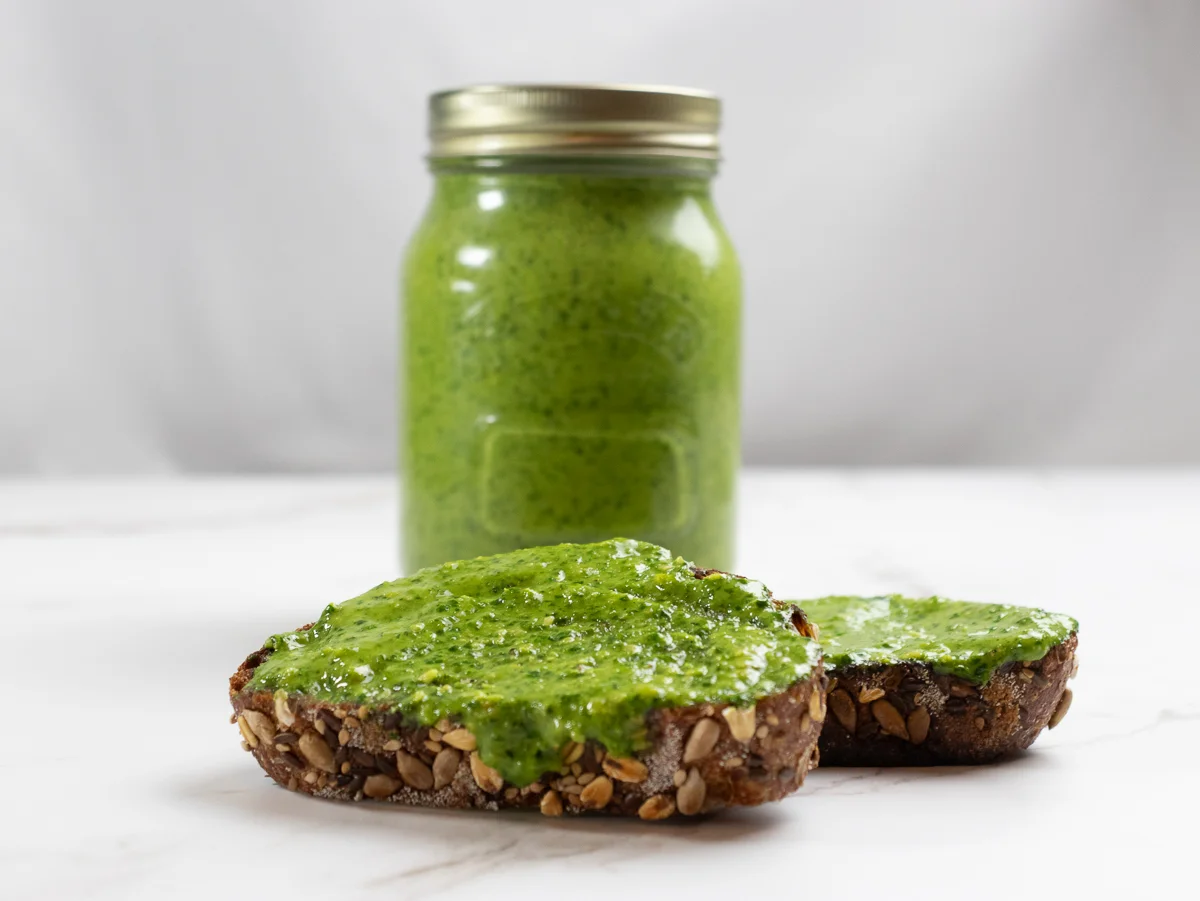I love pesto, but you need a lot of basil to make the traditional version. Not to mention the pine nuts are exorbitantly expensive! My spinach pesto recipe fixes both problems. Using spinach instead of the basil makes it much easier and cheaper to make a large batch. Then substituting the pine nuts for cashews brings the cost down considerably. Obviously, to make this one vegan, we need to substitute the parmesan too. I like to use nutritional yeast for this. Overall, this is a super tasty and incredibly healthy pesto recipe!
Where does pesto come from?
Pesto originated in Genoa, Italy in the 16th century. Traditionally, it’s made using a mortar and pestle. That is actually where the name comes from. The Genovese word pesto means to pound or to crush. But we will make ours in the food processor. That way, it’s much easier to make a big batch.
Moretum could be considered to be an early version of the pesto we are familiar with today. It was a paste made from garlic, oil, herbs and cheese by the Romans. Then the basil pesto we are familiar with today came about in the mid-19th century.
Ingredient notes
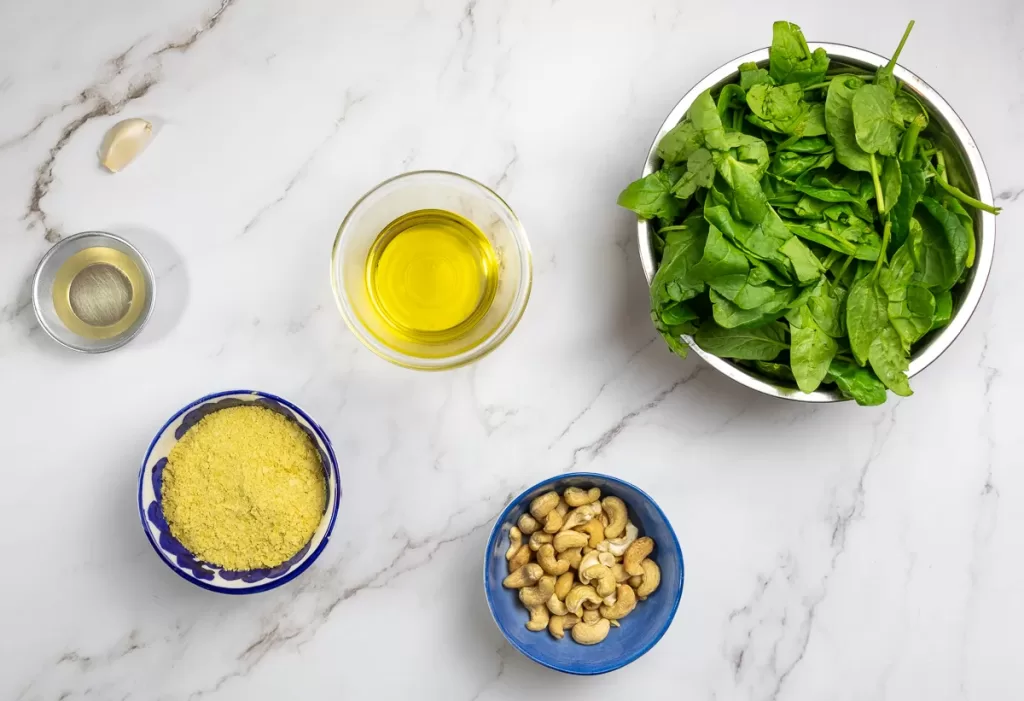
- Cashews – They are pretty good for you. They are full of unsaturated fats, both polyunsaturated and monounsaturated. These can lower cholesterol and reduce the risk of heart disease. They are also high in protein and full of nutrients [1].
- Spinach – It’s incredibly healthy! A leafy green with a good variety of vitamins and antioxidants. It’s rich in insoluble fibre, which is excellent for your gut. It has even been shown to lower blood pressure and improve heart health [2]. I like to use baby spinach. You can use any, but a more mature leaf may end up a little more bitter.
- Olive oil – It is one of the better oils. High in monounsaturated fats, it can help to lower your LDL and increase your HDL. This helps to improve your cardiovascular health [3]. I would recommend using an extra virgin olive oil if possible, as is the highest quality.
- Nutritional yeast – This is one of those vegan super foods! It offers the umami depth of cheese with added health benefits. Not always, but it’s often fortified with B12, which we know we need to supplement from somewhere. Additionally, it serves as a reliable protein source containing all nine essential amino acids.
How to make spinach pesto
1) Add the garlic clove and the cashews into the food processor. Pulse them until they are broken up into small chunks. You don’t want to go too far and turn them into a paste.
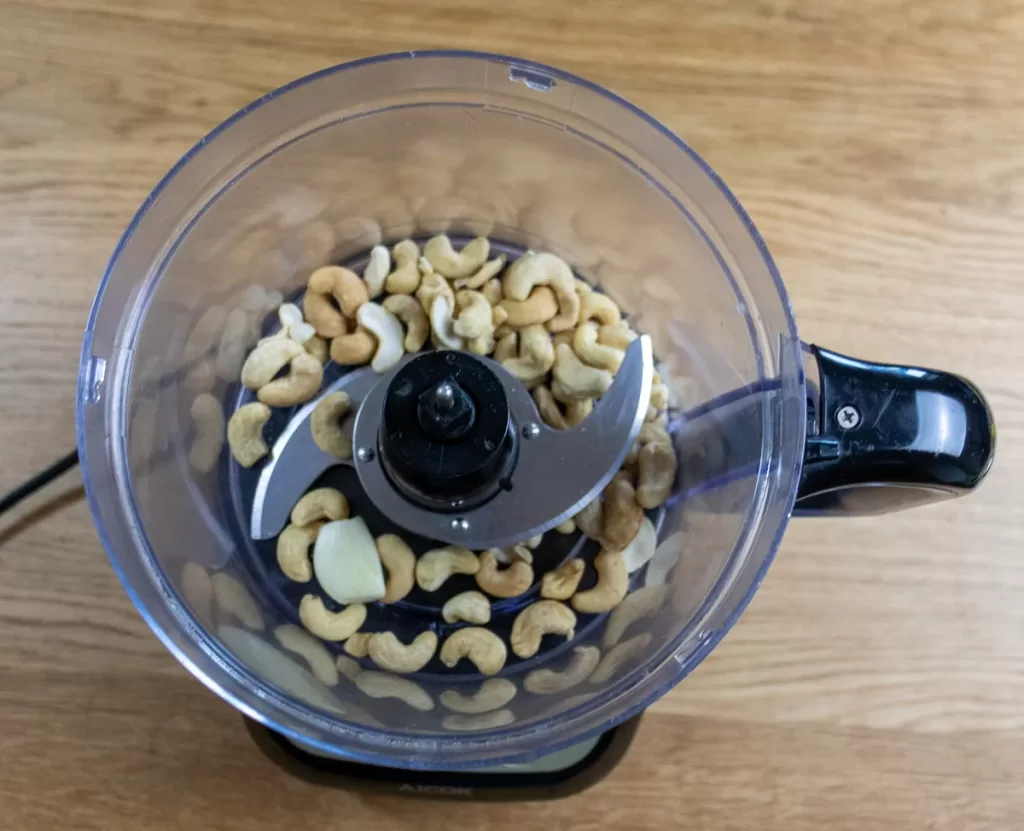
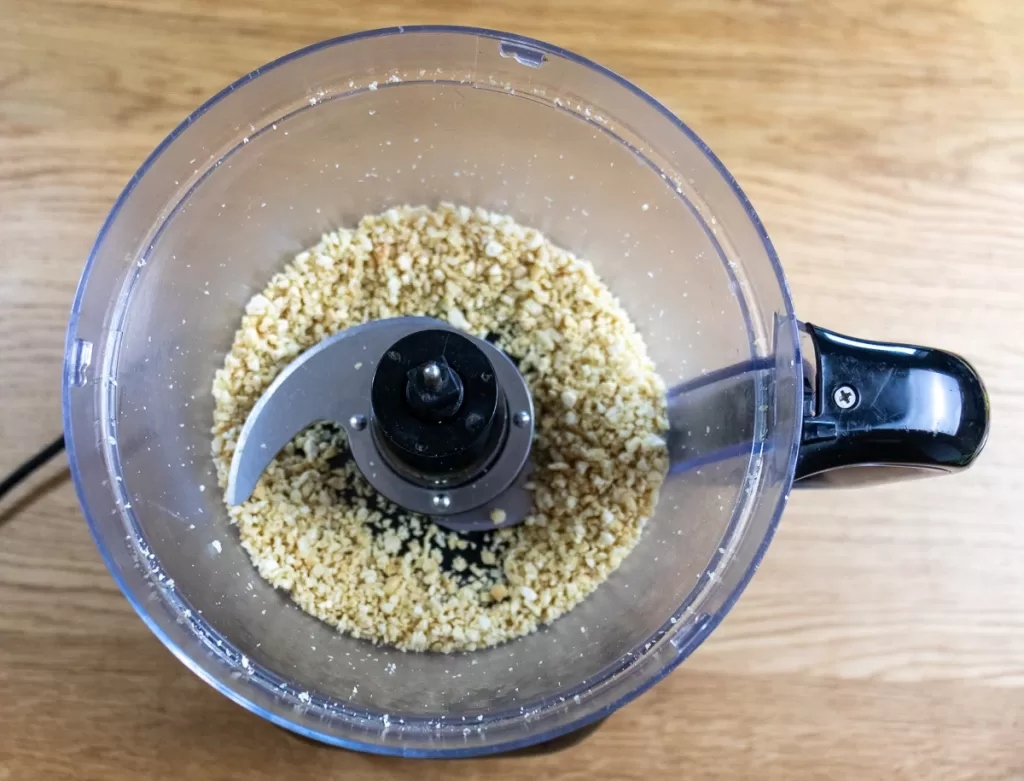
2) I then add the nutritional yeast, along with some salt and pepper.
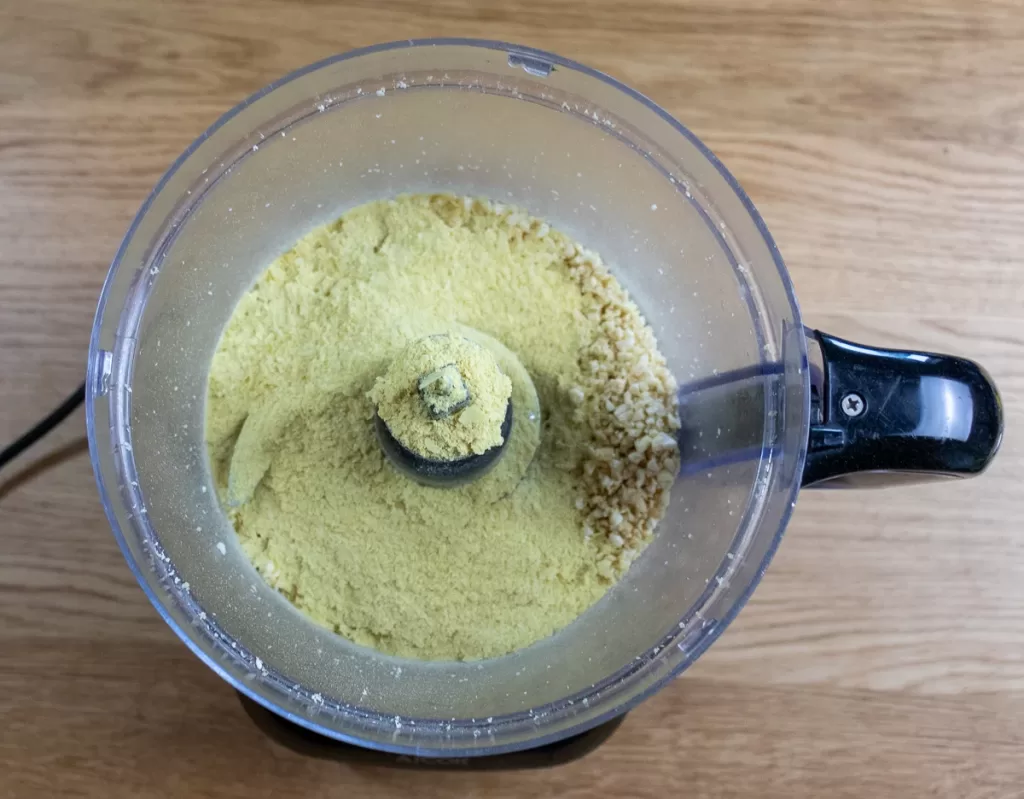
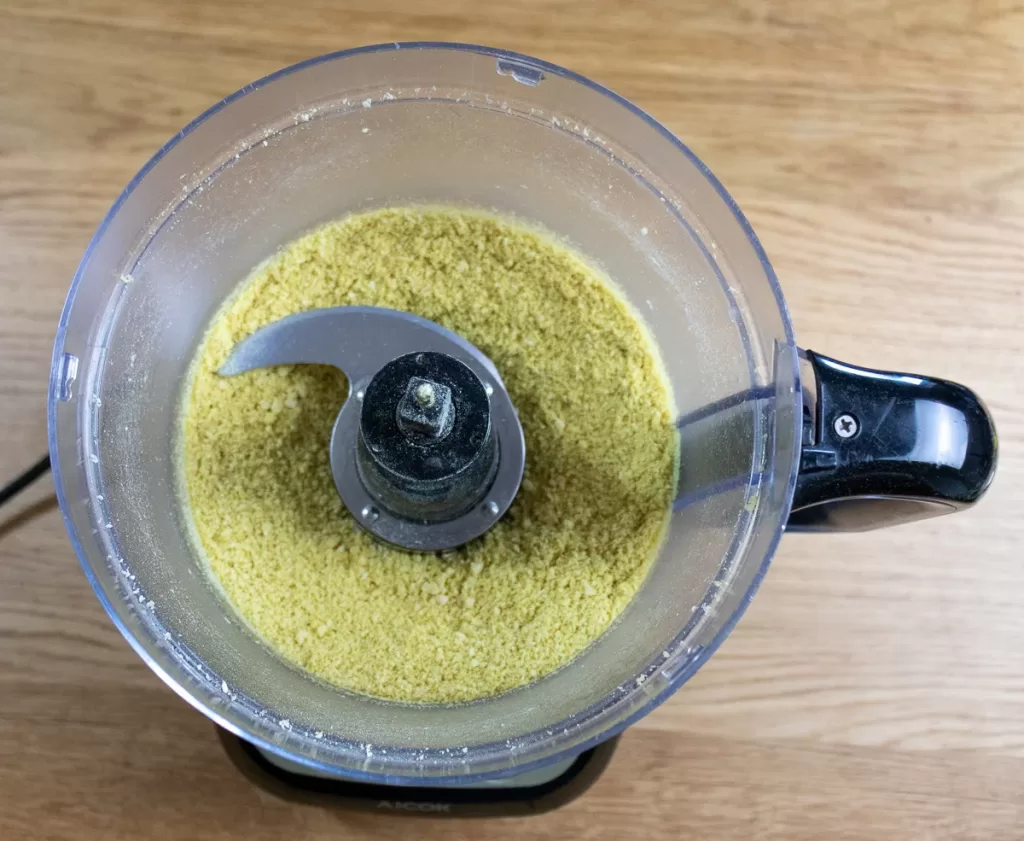
3) Then I like to add the spinach in a little at a time. You will probably need to tamp it down with a spatula and scrape down the sides of your food processor.
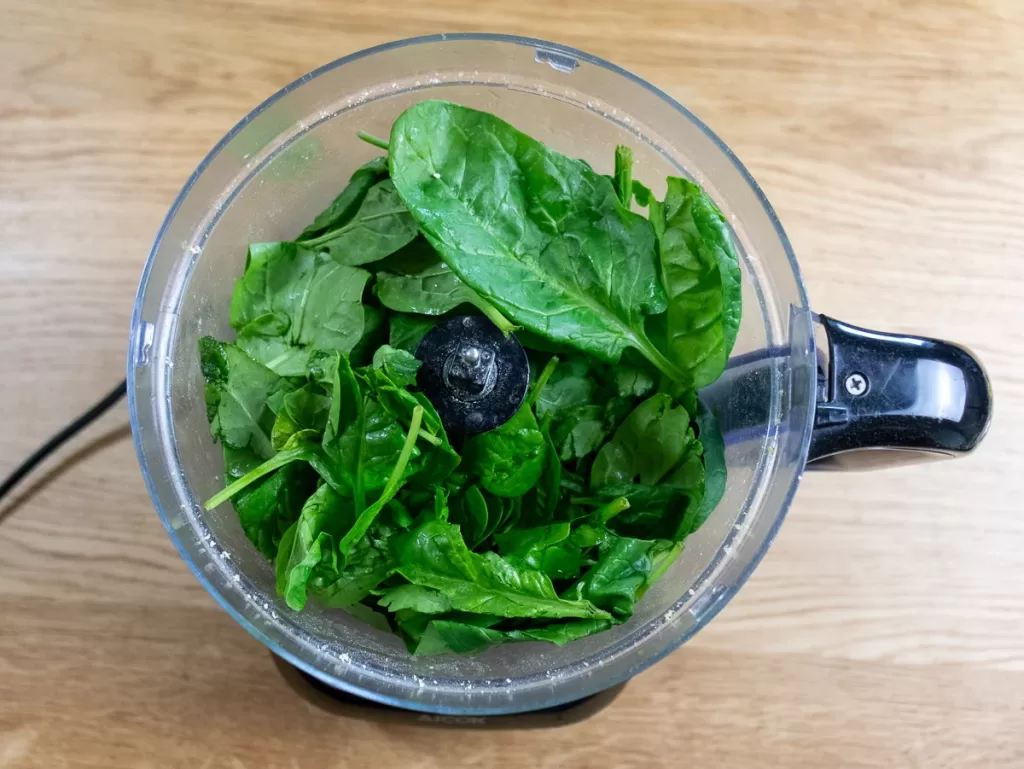
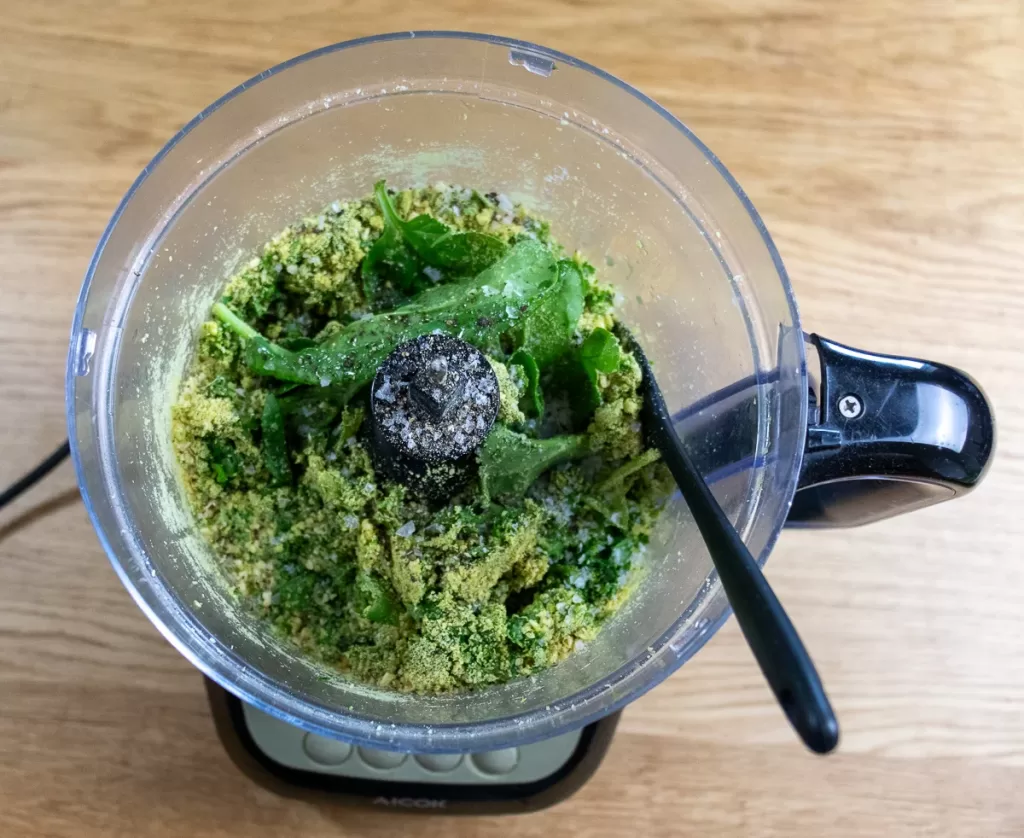
4) After incorporating the spinach, add the olive oil and vinegar.
5) Now you just need to blend it on high for a minute or two until you have a smooth and creamy spinach pesto.
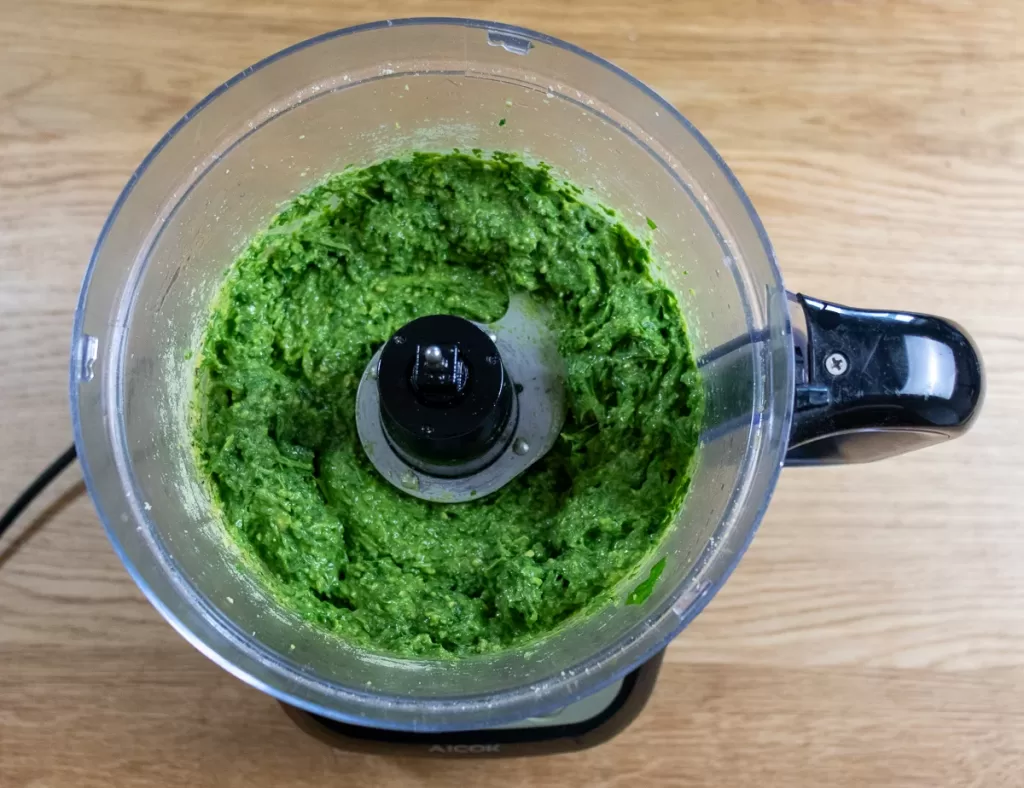
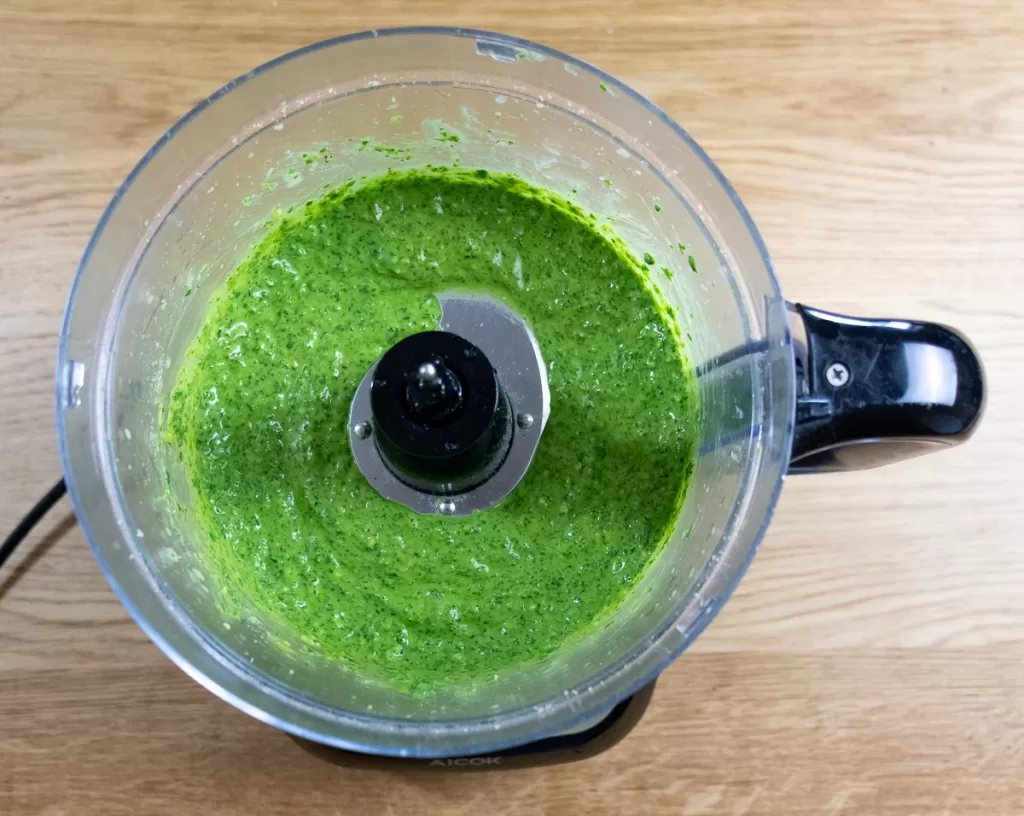
6) Adjust the seasoning to your liking and give it one final blend.
Tips for getting it right
- Make sure you add the nuts into the food processor at the start and break them up before adding other ingredients. Otherwise, they won’t break up uniformly and you’ll have large chunks in your pesto.
- Use a good quality olive oil. It forms a fundamental part of the flavour. So, it is worth using the nice stuff if you can!
Possible Variations
- Using the vinegar in this recipe is not traditional. You can substitute that for lemon juice very easily, or even a different type of vinegar, such as apple cider.
- You can swap out the cashews if you want. Any nuts will do. Almonds work really well, so do walnuts. I would consider using red wine vinegar if using walnuts, as it may pair better with the additional bitterness.
Frequently asked questions
Can spinach pesto be frozen?
Yes! It will freeze really well. Depending on how you are going to use it. One really good way to freeze it, is to fill an ice cube tray with it. Then when it comes time to use it you just add as many cubes as you need to your dish.
Why is my spinach pesto bitter?
On occasion your spinach may be more bitter than normal. Just add a little more of the acid and that should balance out the bitterness.
What to serve with spinach pesto?
Obviously, you can put it on pasta as is or make it into a spinach pesto sauce. However, in my house we use it on all sorts! It works well as a spread for sandwiches, in wraps, or on burgers. This versatile sauce can be repurposed as a zesty salad dressing or a savoury dip.
Can I make a basil spinach pesto combination?
Of course! It’s delicious too. You can taste the sweet nutty notes of traditional pesto blended with the savoury essence of spinach pesto. You can even substitute either of the above for some rocket, or arugula, as it’s known in the U.S.
Tried this recipe? I’d love to hear what you think! Leaving a comment and rating not only helps me but also helps others find and enjoy this recipe.
If you loved it, sharing it or tagging @theseveggiedelights is another great way to spread the love. Your support means a lot—thank you!
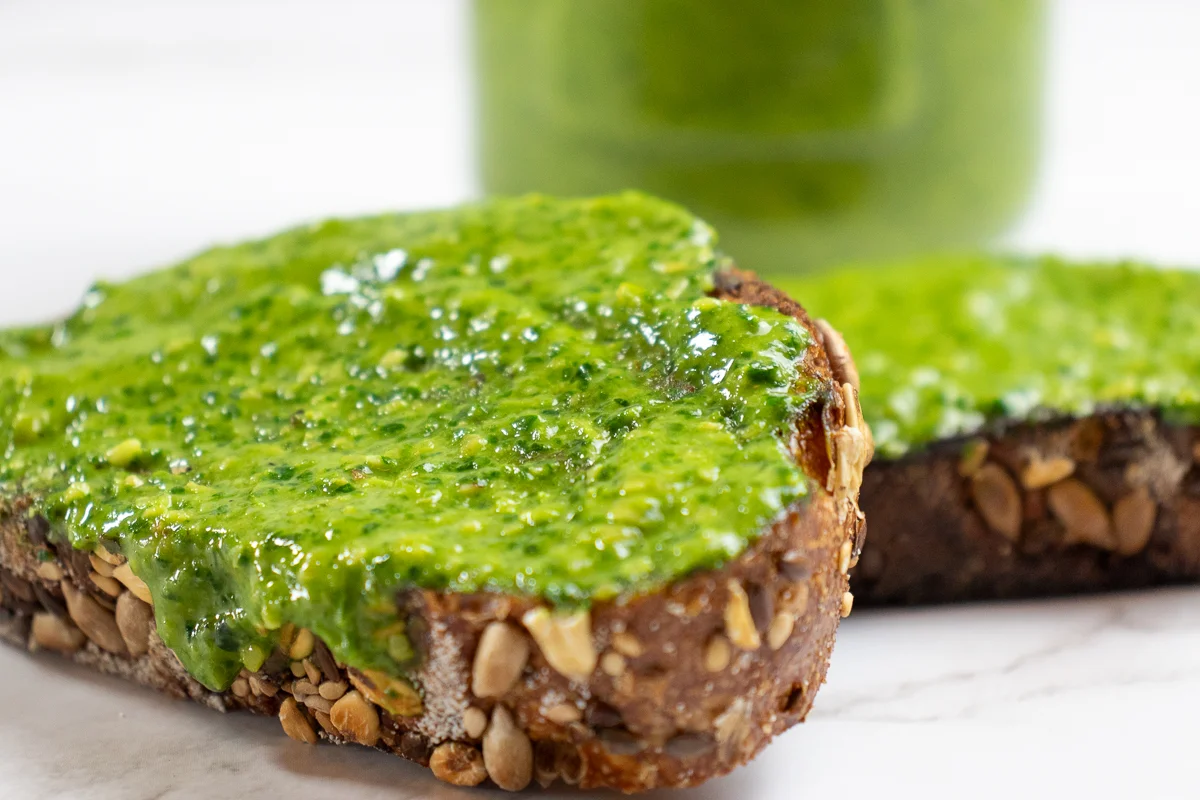
Spinach Pesto
Equipment
Ingredients
- 75 g Cashews
- 500 g Spinach Preferably baby leaf
- 110 g Olive Oil Ideally extra virgin
- 70 g Nutritional Yeast
- 1 Clove Garlic
- 2 Tbsp White Wine Vinegar
Instructions
- Combine the cashews and garlic in the food processor and pulse until they are broken up75 g Cashews, 1 Clove Garlic
- Add in the nutritional yeast and some salt and pepper70 g Nutritional Yeast
- Add the spinach in a little at a time500 g Spinach
- Add the vinegar and the olive oil2 Tbsp White Wine Vinegar, 110 g Olive Oil
- Blend on high until you have a creamy spinach pesto
- Adjust for seasoning to your taste

